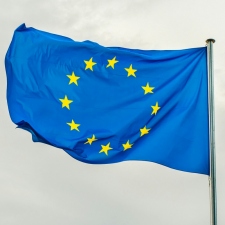
The European Commission has launched non-compliance investigations into Apple and Google over anti-steering and other policies it believes break new rules imposed by the Digital Markets Act.
The EC expressed concern that Apple and Google – large platform holders it calls ‘gatekeepers’ – were still not “fully compliant” with the DMA, “as they impose various restrictions and limitations” on developers.
“These constrain, among other things, developers’ ability to freely communicate and promote offers and directly conclude contracts, including by imposing various charges,” it said.
“Defeating the purpose” of DMA
Meanwhile, the EC is also investigating Apple’s recently proposed fee structure for the App Store – which includes a core technology fee and restrictions for alternative marketplaces.
In January, Apple unveiled a series of new rules for the App Store and iOS as it looked to comply with the DMA. These included reducing its commission to 17% – adding a further 3% for Apply Pay transactions – and introducing a new core technology fee, which charges €0.50 for each first annual install per year over one million downloads.
The EC said the new fee structure, as well as other terms and conditions for alternative stores and sideloading “may be defeating the purpose of its obligations under Article 6(4) of the DMA”.
We previously spoke with analysts, publishers and payment providers about Apple’s proposed changes, with many believing they would maintain the status quo.
Year-long investigations
These investigations will begin as of today and the EC aims to conclude proceedings within 12 months.
It warned any gatekeeper that any infringement could result in fines of up to 10% of a company’s total worldwide turnover – rising to 20% in cases of repeated infringement.
Systematic infringements could also see the EC adopt remedies such as breaking up parts of company’s business or banning it from acquisitions of additional services related to non-compliance.
Big tech in the firing line
As well as the above, the EC has also opened a number of other investigations into potential non-compliance from ‘gatekeepers’.
It is investigating whether Google’s search results lead to self-preferencing its own services, and whether Apple enables users to easily uninstall iOS applications and allows them to easily use alternative services.
Meanwhile, Meta is under scrutiny for its recent ‘pay or consent’ model for the EU, in which it allows users to pay for Facebook rather than part with their data. The Commission expressed concern this did “not provide a real alternative”.
Amazon is also under investigation for potentially preferencing its own products on its website.